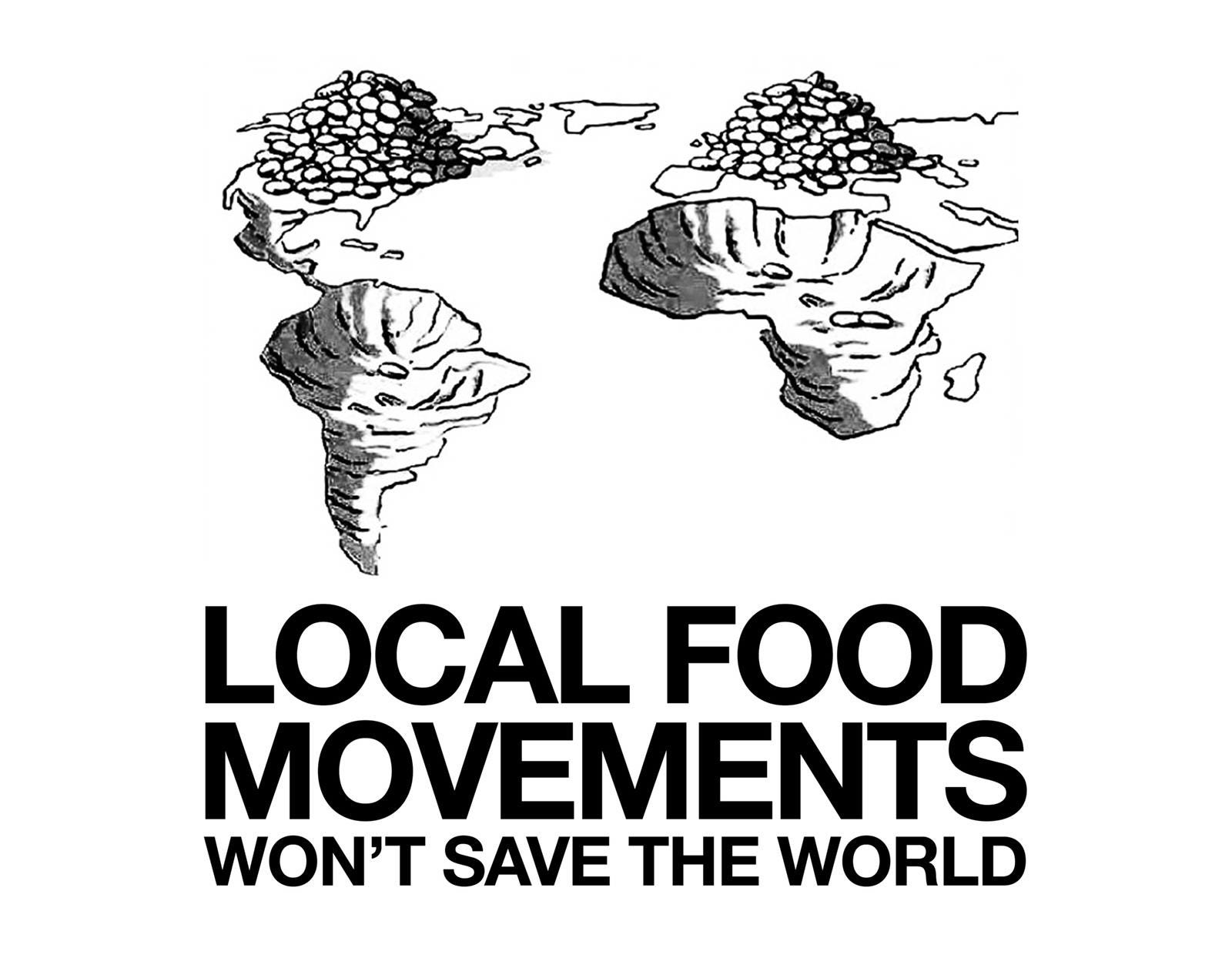Why Local and Equitable are not Synonymous

Over the last few decades, local food movements in the West have become popularized, bringing with them the promise of reshaping the food system in a positive way. We’ve all heard their rallying cry: eat local, buy local, support local. And it makes sense — buying local food might mean that we shop more seasonally, the food might be fresher, we get to develop relationships with the people who grow our food, and we get to support smaller producers — rather than the agribusiness conglomerates who put most of the food on supermarket shelves after it travels for hundreds, if not thousands, of miles to reach us. There’s no denying that creating local food systems that run in parallel to the dominant, corporate food system can have many positive effects.
But we must examine local food movements in the West with more scrutiny if we truly wish to change the food system.
What is the ‘Local’ in Local Food Movements?
A local food system is a “collaborative network that integrates sustainable food production, processing, distribution, consumption, and waste management in order to enhance the environmental, economic, and social health of a particular area.” In essence, it is a smaller food system that often operates outside of the conventional system to have its own growers, markets, and consumers. But what does ‘local’ mean in this context?
In its simplest form, ‘local’ is just a scale — it could be a recognized border, a neighborhood, a region, or another set of boundaries drawn to demarcate who is part of the system and who is not. To do this, someone needs to define what ‘local’ means…
…click on the above link to read the rest of the article…